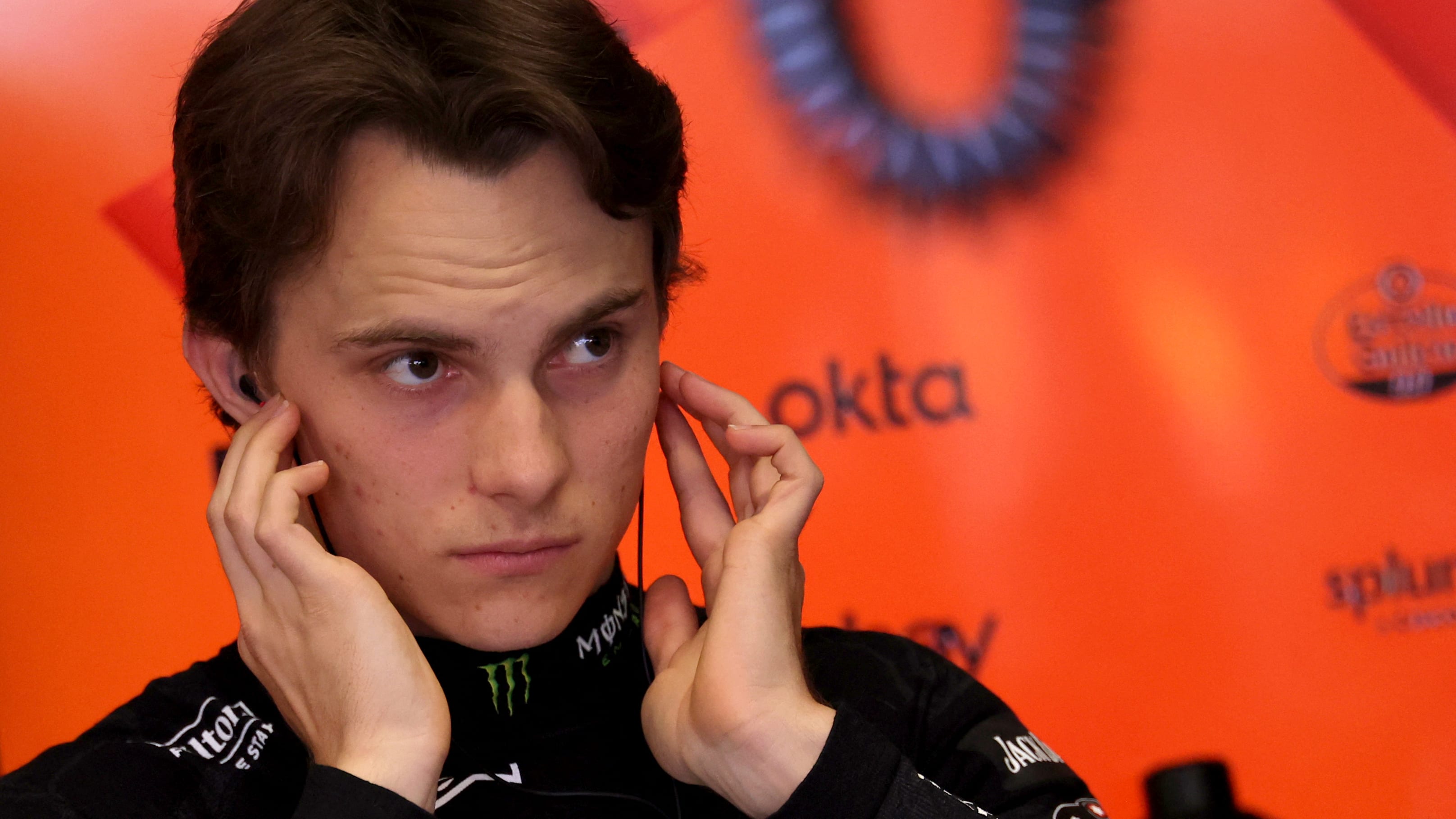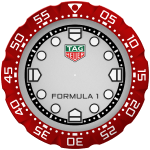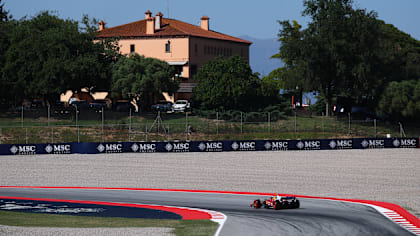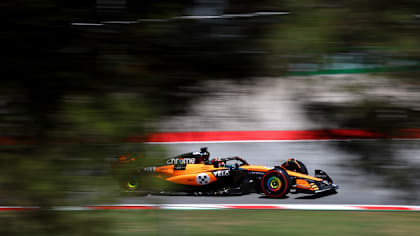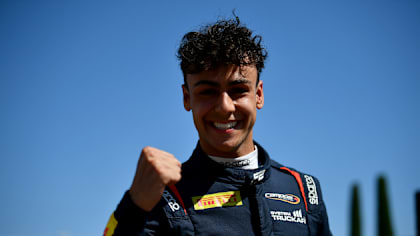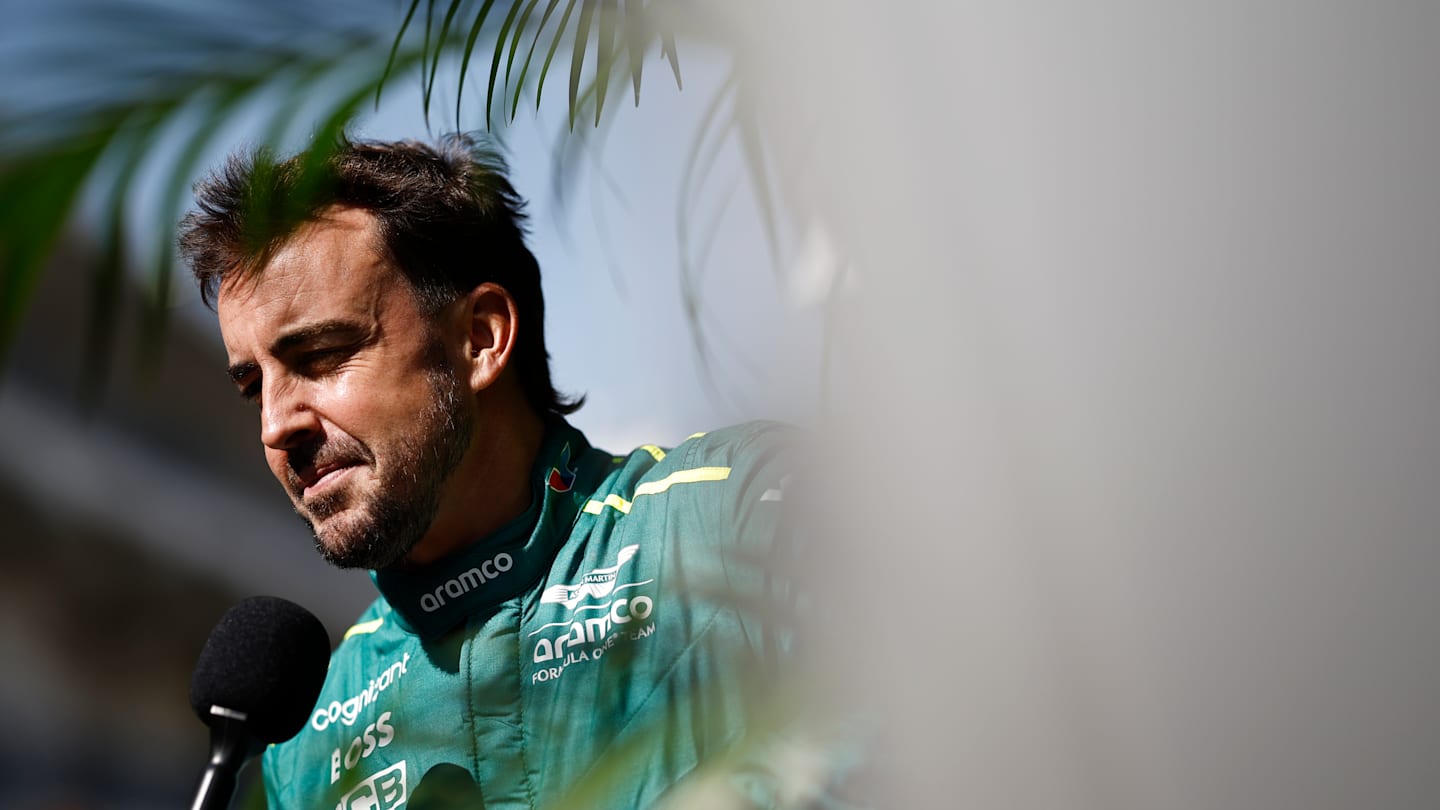
30 May - 01 June
News
Alonso explains what it means to reach 400 Grands Prix as veteran racer admits he thought 2009 would be final F1 season
Share

Fernando Alonso has taken a moment to reflect on his Formula 1 career before celebrating another milestone when he hits 400 appearances at the Mexico City Grand Prix.
Alonso made his F1 debut as a teenager with Minardi back in 2001 and has gone on to race for some of the sport’s most famous teams, including a title-winning stint at Renault and time at McLaren and Ferrari.
Now 43, he this year committed to a fresh deal with Aston Martin as he pushes to add to the pair of championships he won in 2005 and 2006 – Adrian Newey’s impending arrival from Red Bull set to help his and the team’s cause.
With 22 pole positions, 32 race wins, 106 podium finishes and more than 2,300 points to his name, the Spaniard will add to his CV at the Autodromo Hermanos Rodriguez this weekend when he lines up for event number 400.
Appearing on F1’s Beyond The Grid podcast to mark the occasion – brought to you by Salesforce, a Global Partner of Formula 1 – Alonso told host Tom Clarkson what it means to achieve such a high number of starts and touched on the hunger he still has to compete and win.
This feature is currently not available because you need to provide consent to functional cookies. Please update your
“To reach 400 now is a big number,” said Alonso, who admitted that travelling to 24 races a season is demanding but he “pays off all the sacrifices” by getting behind the wheel. “It’s a way of demonstrating my passion for the sport and for F1.
“Knowing that no one reached that number in the past, maybe someone does in the future, but not many, let’s say a group of five or 10 maximum, it just demonstrates my love for racing, for F1, how much I enjoy this lifestyle, motor racing in general.”
Alonso was then asked what his younger self – specifically the 19-year-old at Minardi – would have made of 400 Grand Prix appearances, which is almost 50 clear of next on the list Lewis Hamilton.
It prompted the Oviedo native to reveal that he initially thought he would walk away from F1 at the end of the 2009 season, having signed a three-year deal to race for McLaren – alongside Hamilton – from 2007, only to leave the Woking team after just one turbulent campaign.
“I think that guy in 2001, I was not really thinking too much in the future,” Alonso commented, going back to that debut season. “The dream was coming alive, driving [in] F1, the first race.
Top 10: Moments of Fernando Alonso Brilliance
“I didn’t have a clear roadmap into my career. I didn’t know exactly what was the next race, what will be my next team. I was improvising [and] every weekend was a new adventure.
“What I would say is that when I won the championship in 2006 and then I joined McLaren, I had a three-year contract for 2007, ’08 and ’09, and I was 99% sure that 2009 would be my last F1 season. That was my very clear plan in my head.”
He continued: “When I signed that contract, in my head at that time, it was like a long-term contract and three years will feel maybe long, but this is the last. I already fulfilled my dream. This is beyond my wildest imagination to be an F1 champion, so what else can I do here?
“I signed this contract with McLaren, hoped to win more championships, hoped to win more races, but after F1 there is a different life outside. I was thinking I will have a family, I will do normal things, normal days.
“I don’t think that the 19-year-old, Minardi 2001 Fernando will think something strange about the 400 Grands Prix, because I was not thinking too much in the future, but in 2007, for sure, this would be a surprise.”
DISCOVER MORE...
EXPLAINED: Everything you need to know about the Spanish Grand Prix front wing Technical Directive
5 must-see moments from the new 'F1: The Academy' Netflix show
F1 25 out now – with 'F1' movie integration and the return of ‘Braking Point’ story mode
GREATEST RACES #23: An F1 title decided by just half a point – 1984 Portuguese Grand Prix
YOU MIGHT ALSO LIKE
Live Blog AS IT HAPPENED: Follow all the action from second practice for the Spanish Grand Prix
FeatureF1 Unlocked PRACTICE DEBRIEF: Can Red Bull or Mercedes take the fight to McLaren at the Spanish Grand Prix?

Video WEEKEND WARM-UP: McLaren look the team to beat but Verstappen aims to keep winning run going in Spain
Report F2: Lindblad in scintillating form as he takes maiden pole in Barcelona
